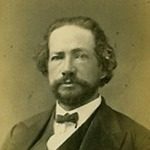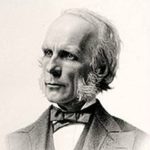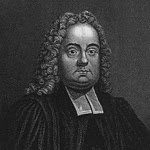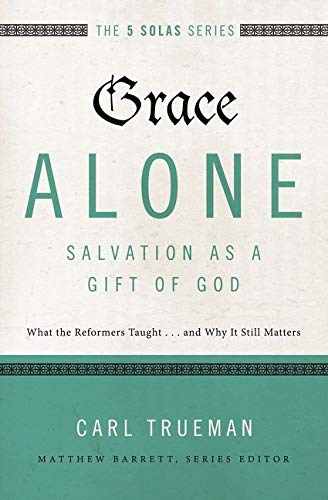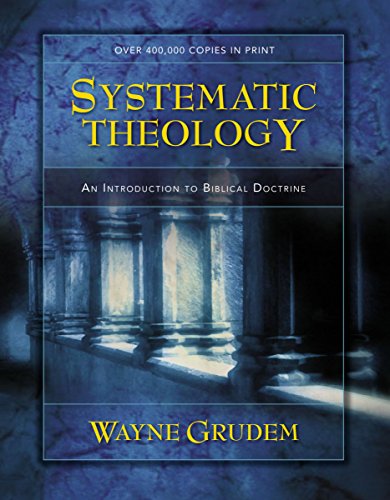Quotes about Regeneration
The Scriptures teach that regeneration is the work of God, changing the heart of man by His sovereign will, while conversion is the act of man turning toward God with the new inclination thus given to his heart.
Any gospel preaching that relies upon an act of the human will for the conversion of sinners has missed the mark. Any sinner who supposes that his will has the strength to do any good accompanying salvation is greatly deluded and far from the kingdom. We are cast back upon the regenerating work of the Spirit of the living God to make the tree good. Unless God does something in the sinner, unless God creates a clean heart and renews a right spirit within man, there is no hope of a saving change.
Man’s Will – Free Yet Bound, The Banner of Truth magazine, Issue 140, by permission Banner of Truth, Carlisle, PA. May 1975.
Adoption gives us the privilege of sons, regeneration the nature of sons.
New birth is known by its fruits, not by a decision. The most important fruit is hunger for God Himself. Effective parents assume this, and patiently wait for sustained fruit before they render a verdict.
Gospel-Powered Parenting, 2009, P&R Publishing, p. 30, Used by Permission. Get this book!
By his apostasy man lost his holiness, is wholly corrupt and under the dominion of dispositions and lusts which are directly contrary to God. The corruption of man’s being is so great and entire that he will never truly repent unless and until he is supernaturally renewed by the Holy Spirit.
A spiritual kingdom requires a spiritual nature, and in order to the acquisition of that the natural man must be regenerated (born again), divinely regenerated, for the creature can no more quicken himself than he can give himself a natural being. Why not? Because regeneration is no mere outward reformation, process of education, or even religious cultivation. No, it consists of a radical change of heart and transformation of character, the communication of a gracious and holy principle, producing new desires, new capacities, a new life. The new birth is absolutely imperative, but this is the work of the Spirit of God from the very nature of the case. Birth altogether excludes the idea of any effort or work on the part of the one born, hence it is written “It is the Spirit that quickeneth; the flesh profiteth nothing” (John 6:63).
The issue is not the skill of the one proclaiming the message, the packaging of the message, or the technique used in proclaiming it. The issue is the condition of the hearer. Jesus illustrated that principle in the parable of the sower. The same message (the seed) is proclaimed by the same individual (the sower); the only variable is the condition of the four soils. What is essential for the messengers of the gospel is not cleverness but clarity. Only God can open the sin-blinded eyes of those who are “dead in [their] trespasses and sins” (Eph. 2:1; cf. v. 5; Matt. 8:22; Eph. 4:18).
There can be no repentance or faith until the heart has been re-created. But in the moment of regeneration, the Holy Spirit imparts the gift of repentant faith to sinners – bringing them to saving faith in Christ and enabling them to turn away from sin. The result is a dramatic conversion.
A full, true confession of Jesus Christ as Lord is only possible by the work of the Holy Spirit through exposure to the written revelation, the external Scripture which He authored and accompanied by the internal heart work by which He regenerates, illuminates and sanctifies.
The Cure for Hypocrisy. The sermon originally appeared (https://www.gty.org/library/sermons-library/42-170/a-certain-cure-for-hypocrisy-part-3) at www.gty.org. © 1969-2008. Grace to You. All rights reserved. Used by Permission.
Unbelievers do not need more evidence, whether logical or empirical [that God exists]; rather, they need new eyes to properly evaluate the sufficient evidence they already have. They need to experience the miracle of regeneration, in which God quickens the unbelieving heart by shining into it the light of the knowledge of His glory.
God the Father by John MacArthur and Richard Mayhue taken from Biblical Doctrine by John MacArthur and Richard Mayhue, copyright 2017, Crossway Books, a division of Good News Publishers, Wheaton Illinois 60187, www.crosswaybooks.org. Page 151.
A true seeker has come under the convicting power of the Holy Spirit by virtue of a true understanding of the law of God. A true seeker has been broken and contrite in heart by being measured against the law of God and found guilty before God. A true seeker knows that there is no way to earn salvation by works. And a true seeker is so desperate for eternal life as to gladly abandon everything in this life for that greatest of all gifts and willingly submit to the lordship of Jesus Christ. Those are the tests that separate the false seeker from the true seeker. The true seeker can be saved because God alone produces that kind of repentance and submission. The false seeker cannot be saved because it’s impossible if you’re just coming on your own.
The Impossibility of Salvation – Part 2. The sermon originally appeared (https://www.gty.org/library/sermons-library/42-233/the-impossibility-of-salvation-part-2) at www.gty.org. © 1969-2008. Grace to You. All rights reserved. Used by Permission
What the Holy Spirit does in the new birth is not to make a man a Christian regardless of the evidence, but on the contrary to clear away the mists from his eyes and enable him to attend to the evidence.
There is no miracle greater than the miracle of regeneration.
[Regeneration] is therefore, beyond all contradiction a supernatural change produced by the Sprit of God; and there is something in its nature which is mysterious and wonderful,…but however inscrutable…its effects are certain… Its effects will be, repentance toward God, and faith toward our Lord Jesus Christ; a hatred to sin, and a love to holiness; supreme love to God, and unfeigned benevolence to men.
However one chooses to interpret Revelation 3:20, it must not be thought that the sinner possesses the power to open his own heart to Christ. Only God can do this (John 6:44; Acts 16:14; James 1:18). Although God’s sovereignty in salvation does not negate our responsibility to proclaim the Gospel to all men, we must never suggest to people that the power to convert their hearts lies within them (Psalm 110:3; Philippians 1:29; 2 Timothy 2:24-26) (Darryl Erkel).
Repentance and faith infallibly and inseparably flow from regeneration. True repentance takes place when God enables a heart to turn away from sin. This does not mean believers will not still struggle with sin, but rather they are aware of their sin and they feel sorrow and conviction before God. Faith is more than intellectual assent. It is a God-given, unmistakable holding on to Christ and a total surrender to God’s authority (Rom. 3:21-31). This change from rebellion to submission, from unbelief to intelligent trust, is the unambiguous fruit of regeneration.
New Birth by Ben Peays taken from Don’t Call it a Comeback, edited by Kevin DeYoung, copyright 2011, Crossway Books, a division of Good News Publishers, Wheaton Illinois 60187, www.crosswaybooks.org, page 91.
Regeneration consists in a radical change of heart, for there is implanted a new disposition as the foundation of all holy exercises; the mind being renovated, the affections elevated, and the will emancipated from the bondage of sin.
The Holy Spirit.
Get this book!
Being a Christian involves leaving behind superficial religion for supernatural regeneration.
Taken from Follow Me by David Platt. Copyright © 2013 by David Platt. Used by permission. Website: Radical.net. Page 208.
Jesus did not come so that we might live a life of superficial religion. He came so that we might receive new life through supernatural regeneration.
Taken from Follow Me by David Platt. Copyright © 2013 by David Platt. Used by permission. Website: Radical.net. Page 57.
A regeneration which a man can have, and yet live carelessly in sin or worldliness, is a regeneration invented by uninspired theologians, but never mentioned in Scripture… In a word, where there is no sanctification there is no regeneration, and where there is no holy life there is no new birth.
The new life is not implanted because man perceives the truth, but he perceives the truth because the new life is implanted. A man is not regenerated because he has first believed in Christ, but he believes in Christ because he has been regenerated. He is not regenerated because he first repents, but he repents because he has been regenerated.
It’s a radical transformation. It’s not an improved inner man, but a total replacement of the old with the new. A new heart that now has the capabilities and desires to function on an entirely different spiritual plane. So when this new soul seeks its ultimate pleasures in the passing and trivial things that the old soul chased after, it only sets itself up for failure. It’s like trying to drive a new $300,000 yacht down the parkway. You’ll be disappointed.
How does God do it? How does God open blind eyes and regenerate dead hearts and bring spiritual light? Answer: with the same Spirit-driven power He used in creation to bring physical light. “The earth was formless and void, and darkness was over the surface of the deep, and the Spirit of God was moving over the surface of the waters. Then God said, ‘Let there be light’; and there was light” (Gen. 1:2-3). Likewise, hearts are spiritually darkened and dead. Yet when the Gospel is proclaimed, the Spirit regenerates by shining light to make one now see and thus desire the glory of Jesus Christ more than anything else they ever desired in the past. So at some point for all those truly in Christ, God said, “Let there be light!” and with that they immediately and freely received Christ as their treasure. This is what Paul says in 2 Corinthians 4, verse 6: “For God, who said, ‘Light shall shine out of darkness,’ is the One who has shone in our hearts to give the Light of the knowledge of the glory of God in the face of Christ.” The same power once used in creation is now unleashed in recreating the new creation of God.
Sermon: A Successful Gospel-Centered Ministry – part 3, 2 Corinthians 4:1-6, May 3, 2014.
So many are excusing their sin saying they were “born that way.” That’s why we need to heed the words of Jesus Christ and be born again.
The work of the Holy Spirit in John 3 is applied to the wind (the same word as spirit). From a human perspective, the wind has a point of origin and a destination that is unknown, yet we know the wind is present based upon the effects it leaves behind. Likewise, we are totally at the mercy of the free and sovereign will of God. Just as the wind is invisible and unpredictable and uncontrollable, God’s Spirit is moving among human beings, regenerating their hearts, and enabling them to willingly trust Christ for salvation. And when people do trust Christ, there will be evidence of His presence.
Throughout Scripture we see the Bible testifying of the generating power of God’s Word. Beginning in Genesis 1 we read that God spoke this world into existence creating life out of darkness. In Ezekiel 37 we have the fabulous vision where the Prophet is called to preach to the dry bones and through the preaching of God’s Word, God’s Spirit would bring deadness to life. This is how God gives us spiritual life. This is how God takes spiritually dead corpses and regenerates them through the teaching of His Word. 1 Peter 1:23, “For you have been born again not of seed which is perishable but imperishable, that is, through the living and enduring word of God” (cf. Jas. 1:18). In Romans 10 the familiar verse says “faith comes from hearing, and hearing by the word of Christ” (Rom. 10:17). That is why Paul told the Corinthians, “God was well-pleased through the foolishness of the message preached to save those who believe” (2 Cor. 1:21b; cf. 1 Cor. 1:17; 23; 9:16, 18; 15:11).
Rebirth or regeneration is monergistic, not synergistic. It is done by God and by God alone. A dead man cannot cooperate with his resurrection. Lazarus did not cooperate in his resurrection. Regeneration is a sovereign act of God in which man plays no role. After God brings us to life, of course, we certainly are involved in “cooperating” with Him. We are to believe, trust, obey, and work for Him. But unless God acts first, we will never be reborn in the first place. We must also realize it is not as if dead people have faith, and because of their faith God agrees to regenerate them. Rather, it is because God has regenerated us and given us new life that we have faith.
Our natural prejudgment of reality is against God. To receive the truth of God requires that our “anti” bias be changed. The key work of the Holy Spirit in regeneration is not giving new knowledge to the brain but changing the disposition of the heart. Before the Spirit turns that heart of stone into a heart of flesh, we have no desire for the things of God. We may desire the blessings that only God can give us, but we have no affection for the things of God. At the moment of regeneration, the eyes of the heart are opened somewhat, but this is just the beginning. The whole Christian life involves an unfolding and enlarging of the heart’s openness to the things of God.
The Purpose of God, An Exposition of Ephesians, Christian Focus Publications, 1994, p. 40.
1. Regeneration is the divine work of God the Holy Spirit upon the minds and souls of fallen people, by which the Spirit quickens those who are spiritually dead and makes them spiritually alive. This supernatural work rescues that person from his bondage to sin and his moral inability to incline himself towards the things of God. Regeneration, by being a supernatural work, is obviously a work that cannot be accomplished by natural man on his own. If it were a natural work, it would not require the intervention of God the Holy Spirit.
2. Regeneration is a monergistic work. “Monergistic” means that it is the work of one person who exercises his power. In the case of regeneration, it is God alone who is able, and it is God alone who performs the work of regenerating the human soul. The work of regeneration is not a joint venture between the fallen person and the divine Spirit; it is solely the work of God.
3. The monergistic work of regeneration by the Holy Spirit is an immediate work. It is immediate with respect to time, and it is immediate with respect to the principle of operating without intervening means. The Holy Spirit does not use something apart from His own power to bring a person from spiritual death to spiritual life, and when that work is accomplished, it is accomplished instantaneously. No one is partly regenerate, or almost regenerate. Here we have a classic either/or situation. A person is either born again, or he is not born again. There is no nine-month gestation period with respect to this birth. When the Spirit changes the disposition of the human soul, He does it instantly. A person may not be aware of this internal work accomplished by God for some time after it has actually occurred. But though our awareness of it may be gradual, the action of it is instantaneous.
4. The work of regeneration is effectual. That is, when the Holy Spirit regenerates a human soul, the purpose of that regeneration is to bring that person to saving faith in Jesus Christ. That purpose is effected and accomplished as God purposes in the intervention. Regeneration is more than giving a person the possibility of having faith, it gives him the certainty of possessing that saving faith.
5. Regeneration is a gift that God disposes sovereignly to all of those whom He determines to bring into His family.
The New Birth, Tabletalk, March 2007, p. 6-7. Used by Permission of Ligonier Ministries.
The gospel is preached in the ears of all; it only comes with power to some. The power that is in the gospel does not lie in the eloquence of the preacher; otherwise men would be converters of souls. Nor does it lie in the preacher’s learning; otherwise it would consist in the wisdom of men. We might preach till our tongues rotted, till we should exhaust our lungs and die, but never a soul would be converted unless there were mysterious power going with it – the Holy Ghost changing the will of man. O Sirs! We might as well preach to stone walls as to preach to humanity unless the Holy Ghost be with the Word, to give it power to convert the soul.
And if God does require the sinner – dead in sin – that he should take the first step, then He requireth just that which renders salvation as impossible under the gospel as ever it was under the law, seeing man is as unable to believe as he is to obey, and is just as much without power to come to Christ as he is without power to go to heaven without Christ. The power must be given to him of the Spirit. He lieth dead in sin: the Spirit must quicken him. He is bound hand and foot, fettered by transgression; the Spirit must cut his bonds, and then he will leap to liberty. God must come and dash the iron bars out of their sockets, and then he can escape afterwards, but unless the first thing be done for him, he must perish as surely under the gospel as he would have done under the law.
I might preach to you forever. I might borrow the eloquence of Demosthenes or of Cicero, but you will not come unto Christ. I might beg of you on my knees, with tears in my eyes, and show you the horrors of hell and the joys of heaven, the sufficiency of Christ, and your own lost condition, but you would none of you come unto Christ of yourselves unless the Spirit that rested on Christ should draw you. It is true of all men in their natural condition that they will not come unto Christ.
Calvinists insist that the sole cause of regeneration or being born again is the will of God. God first sovereignly and efficaciously regenerates, and only in consequence of that do we act. Therefore, the individual is passive in regeneration, neither preparing himself nor making himself receptive to what God will do. Regeneration is a change wrought in us by God, not an autonomous act performed by us for ourselves. Man’s status in regard to regeneration is that of a recipient, not a contributor. Man is spiritually, in relation to regeneration, what Lazarus was physically, in relation to resurrection: dead, passive, unable to do anything at all, wholly subject to the will of Him who gives life and breath to whomever He desires.
Order of Salvation, November 8, 2006, www.enjoyinggodministries.com. Used by Permission.
Scripture does not portray people as merely sick or even confined to intensive care. They are spiritually dead. They are religious and moral cadavers! Yes, people are very much alive physically and mentally and emotionally. But they are dead spiritually. This is not to say that faith and repentance are unnecessary. If a man is to be saved it will be through faith, or not at all. But because he is spiritually lifeless (Eph. 2:1-2), he must first be made alive by the power of God’s grace before he is able to repent and believe.
Freedom and Depravity – Part II, November 6, 2006, www.enjoyinggodministries.com. Used by Permission.
In regeneration nature is not ruined, but rectified. The convert is the same man, but new made. The faculties of his soul are not destroyed, but they are refined; the same violin, but newly tuned. Christ gave not the blind man new eyes, but a new sight to the old ones. Christ did not give Lazarus a new body, but enlivened his old body. So God in conversion doth not bestow a new understanding, but a new light to the old; not a new soul, but a new life to the old one.
A Puritan Golden Treasury, compiled by I.D.E. Thomas, by permission of Banner of Truth, Carlisle, PA. 2000, p. 234.
There may be several things which may help to make the life fair in the eyes of men; but nothing will make it amiable in the eyes of God, unless the heart be changed and renewed. All the medicines which can be applied, without the sanctifying work of the Spirit, though they may cover, they can never cure the corruption and diseases of the soul.
A Puritan Golden Treasury, compiled by I.D.E. Thomas, by permission of Banner of Truth, Carlisle, PA. 2000, p. 234.
[God] penetrates into the inmost being of man, opens the closed heart, softens the hard heart, and circumcises the heart that is uncircumcised. He infuses new qualities into the will, making the dead will alive, the evil one good, the unwilling one willing, and the stubborn one compliant; He activates and strengthens the will so that, like a good tree, it may be enabled to produce the fruits of good deeds.
The Canons of Dort, The Third and Forth Main Points of Doctrine: Human Corruption, Conversion to God, and the Way It Occurs. Article 11- Regeneration.
Divine grace of regeneration does not act in people as if they were blocks and stones; nor does it abolish the will and its properties or coerce a reluctant will by force, but spiritually revives, heals, reforms, and – in a manner at once pleasing and powerful – bends it back.
The Canons of Dort, The Third and Forth Main Points of Doctrine: Human Corruption, Conversion to God, and the Way It Occurs. Article 16- Regeneration’s Effect.
The devil would have Christ prove Himself to be God, by turning stones into bread; but the Holy Ghost shows His Godhead by turning stones into flesh (Eze. 36:26).
Being saved does involve the positive response of the human will. The person who is saved begins, at a point in time, to consciously and voluntarily assent and submit to (as well as delight in) God’s revealed truth where he formerly dissented to it in open rebellion or apathetic disinterest (which is also a form of rebellion). God grants regeneration to whom He pleases, thus freeing the will, which, until the point of regeneration, is enslaved to sin and opposed to God and truth. Once the will has been set free through regeneration, faith inevitably follows (cf. John 6:44-45). In this way it is rightly said that saving faith is a gift from God.
Daryl Wingerd The Corrupt Root and Bitter Fruit of Altar Call Evangelism, Christian Communicators Worldwide, www.CCWtoday.org. Used by Permission.
